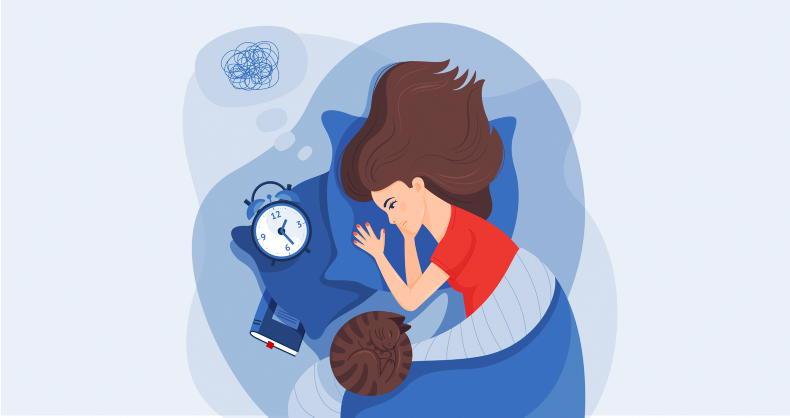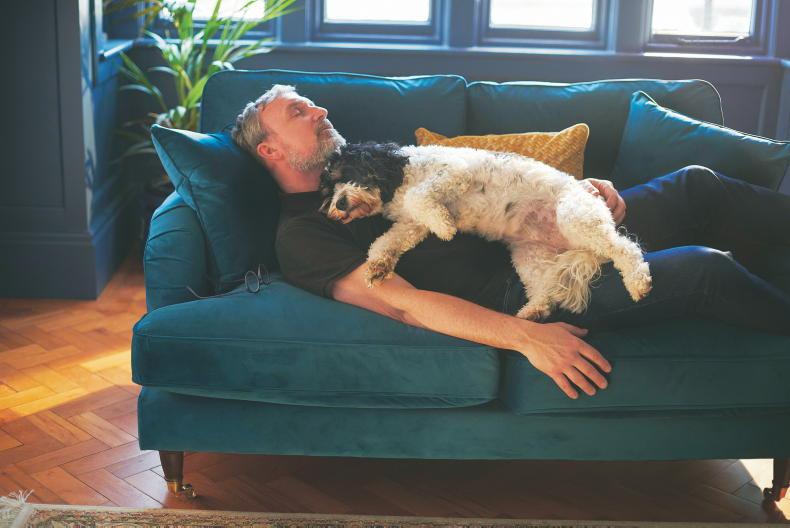What if I told you there is something you can do for yourself that costs nothing, but can help to keep your heart healthy, reduce your stress levels, improve your memory and even help your body to repair itself. Would you be interested in trying it out? Would you happily sign up for something with such great benefits?
What if I told you all these benefits are within our grasp every single day? Would you believe me if I told you all these benefits can be achieved by something you can do with your eyes closed? Yes, all these benefits can be achieved by sleeping.
A 2018 survey found that almost 80% of adults in Ireland are sleep deprived. Some of the most serious potential problems associated with prolonged sleep deprivation are high blood pressure, diabetes, heart attack or stroke. Other potential problems include obesity, depression and reduced immune system function, but the good news is there is something very simple we can do to help prevent these conditions – get some sleep.
For adults, eight hours a night is really what we should be aiming for, but what if you are – like many of us – a person who wants to sleep but just can’t? Or worse still, goes to sleep, but then wakes up and can’t return. In that case, routine is key.
1. Physical exercise
Make sure you plan your sleep hours and keep them consistent, even at the weekend. Go to bed at the same time and get up at the same time each day.
At least a half hour before you plan on sleeping, refrain from using any digital device or watching TV – I know! But all kinds of devices emit blue light, even e-readers, and blue light affects the body’s ability to prepare for sleep as it blocks melatonin, which is the hormone that makes you sleepy.
Once you get to the bedroom, ensure it is dark so as to trigger melatonin and make sure your bedroom is cool as the body’s core temperature needs to drop by one degree in order to sleep well.
Also, maybe reconsider brushing your teeth etc in a really brightly lit bathroom last thing at night, as this also makes it a little bit more difficult to fall asleep.
If you find it hard to sleep due to worry or anxiety, then before you get into bed, write down all the things you are worrying about in a journal/notebook/copy. Then when you have them all written down, write down three things you are grateful for or that make you smile. Close the notebook and begin the mindful exercise.
2. Mindful exercise
Get into bed, lights out, close your eyes. Lay on your back. Place one hand on your tummy, one hand on your chest. Breathe slowly in and out for about five minutes. As you inhale, breathe down into your belly. Focus on your breath. If you like, repeat silently to yourself: “Breathing in, I smile. Breathing out, I let go.”
3. Something to ponder
Human beings are the only species to deliberately deprive themselves of sleep and all the benefits outlined above.
Did you know that in 2012, scientists discovered that the brain actually has its own cleaning system called the glymphatic system, so while the brain sleeps, it clears out harmful toxins, a process that may reduce the risk of Alzheimer’s, researchers say. So it’s definitely worth getting a proper restful night’s sleep.
If you’re not sure whether or not you are getting enough sleep, the average person falls asleep in seven minutes. If you fall asleep in less than five minutes, it’s likely you’re sleep deprived, which is something you can and should address with your eyes closed. Sleep well my friends and prosper.
Read more
Catherine Callaghan: ‘steadiness is a super power’
Catherine Callaghan explores mindfulness for pain
What if I told you there is something you can do for yourself that costs nothing, but can help to keep your heart healthy, reduce your stress levels, improve your memory and even help your body to repair itself. Would you be interested in trying it out? Would you happily sign up for something with such great benefits?
What if I told you all these benefits are within our grasp every single day? Would you believe me if I told you all these benefits can be achieved by something you can do with your eyes closed? Yes, all these benefits can be achieved by sleeping.
A 2018 survey found that almost 80% of adults in Ireland are sleep deprived. Some of the most serious potential problems associated with prolonged sleep deprivation are high blood pressure, diabetes, heart attack or stroke. Other potential problems include obesity, depression and reduced immune system function, but the good news is there is something very simple we can do to help prevent these conditions – get some sleep.
For adults, eight hours a night is really what we should be aiming for, but what if you are – like many of us – a person who wants to sleep but just can’t? Or worse still, goes to sleep, but then wakes up and can’t return. In that case, routine is key.
1. Physical exercise
Make sure you plan your sleep hours and keep them consistent, even at the weekend. Go to bed at the same time and get up at the same time each day.
At least a half hour before you plan on sleeping, refrain from using any digital device or watching TV – I know! But all kinds of devices emit blue light, even e-readers, and blue light affects the body’s ability to prepare for sleep as it blocks melatonin, which is the hormone that makes you sleepy.
Once you get to the bedroom, ensure it is dark so as to trigger melatonin and make sure your bedroom is cool as the body’s core temperature needs to drop by one degree in order to sleep well.
Also, maybe reconsider brushing your teeth etc in a really brightly lit bathroom last thing at night, as this also makes it a little bit more difficult to fall asleep.
If you find it hard to sleep due to worry or anxiety, then before you get into bed, write down all the things you are worrying about in a journal/notebook/copy. Then when you have them all written down, write down three things you are grateful for or that make you smile. Close the notebook and begin the mindful exercise.
2. Mindful exercise
Get into bed, lights out, close your eyes. Lay on your back. Place one hand on your tummy, one hand on your chest. Breathe slowly in and out for about five minutes. As you inhale, breathe down into your belly. Focus on your breath. If you like, repeat silently to yourself: “Breathing in, I smile. Breathing out, I let go.”
3. Something to ponder
Human beings are the only species to deliberately deprive themselves of sleep and all the benefits outlined above.
Did you know that in 2012, scientists discovered that the brain actually has its own cleaning system called the glymphatic system, so while the brain sleeps, it clears out harmful toxins, a process that may reduce the risk of Alzheimer’s, researchers say. So it’s definitely worth getting a proper restful night’s sleep.
If you’re not sure whether or not you are getting enough sleep, the average person falls asleep in seven minutes. If you fall asleep in less than five minutes, it’s likely you’re sleep deprived, which is something you can and should address with your eyes closed. Sleep well my friends and prosper.
Read more
Catherine Callaghan: ‘steadiness is a super power’
Catherine Callaghan explores mindfulness for pain









SHARING OPTIONS